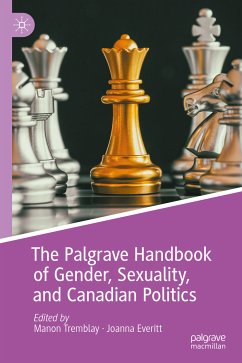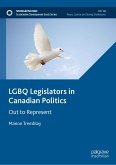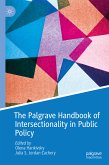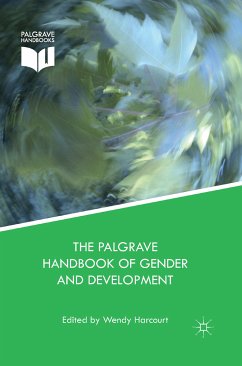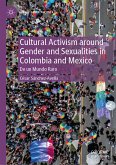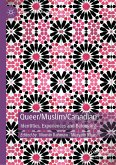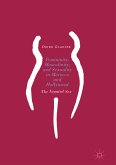The Palgrave Handbook of Gender, Sexuality, and Canadian Politics offers the first and only handbook in the field of Canadian politics that uses 'gender' (which it interprets broadly, as inclusive of sex, sexualities, and other intersecting identities) as its category of analysis. Its premise is that political actors' identities frame how Canadian politics is thought, told, and done; in turn, Canadian politics, as a set of ideas, state institutions and decision-making processes, and civil society mobilizations, does and redoes gender. Following the standard structure of mainstream introductory Canadian politics textbooks, this handbook is divided into four sections (ideologies, institutions, civil society, and public policy) each of which contains several chapters on topics commonly taught in Canadian politics classes. The originality of the handbook lies in its approach: each chapter reviews the basics of a given topic from the perspective of gendered/sexualized and other intersectional identities. Such an approach makes the handbook the only one of its kind in Canadian Politics.
Manon Tremblay is Professor in the School of Political Studies at the University of Ottawa, Canada.
Joanna Everitt is Professor of Political Science at the University of New Brunswick in Saint John, Canada.
Dieser Download kann aus rechtlichen Gründen nur mit Rechnungsadresse in A, B, BG, CY, CZ, D, DK, EW, E, FIN, F, GR, HR, H, IRL, I, LT, L, LR, M, NL, PL, P, R, S, SLO, SK ausgeliefert werden.
Die Herstellerinformationen sind derzeit nicht verfügbar.
Manon Tremblay is Professor in the School of Political Studies at the University of Ottawa, Canada. She is the author of 100 Questions about Women and Politics, and editor of Queering Representation: LGBTQ People and Electoral Politics in Canada along with other works on women, lesbian and gay activism, and politics. Joanna Everitt is Professor of Political Science at the University of New Brunswick in Saint John, Canada, specializing in Canadian politics with a focus on gender and identity in political engagement, public opinion, and political communication. She has also been involved in federal and provincial election studies.
1. Introduction: Approaching Canadian politics through a gender lens.- 2. Canadian liberalism and gender equality: between oppression and emancipation.- 3. Conservatism, Gender, and LGBTQ+ Equity Debates: An Ideological Clash?.- 4. Socialism/Social Democracy: Ideologies of Equality in the Canadian Context.- 5. Gender, Sexuality, and Nationalism in Canada: A Critical Reading.- 6. Gender and Sexuality: Indigenous Feminist Perspectives.- 7. Mobilizing Equality through Canada's Constitution and Charter: Milestones, or Missed and even Mistaken Opportunities?.- 8. Federalism and intergovernmental relations: prospects for a more gender equal Canada.- 9. Canada's Legislature: A (Gendered) Parliament for the People.- 10. Executives in Canada: Adding Gender and Sexuality to their Representational Mandate.- 11. Public Administration and Government Services: Gendering Policymaking in Canada.- 12. The Judiciary: Representation in Law and Justice Public Policy.- 13. Municipal/local Politics: The false pretenses of the Municipal level in Canada.- 14. The Electoral System: The Gendered Politics of Institutions.- 15. Canada's Political Parties: Gatekeepers to Parliament.- 16. Public Opinion, Political Behaviour, and Voting: Exploring Diversity.- 17. Watching the Watchdogs: The News Media's Role in Canadan Politics.- 18. Social Movements: Full-fledged Actors in Canadian Politics.- 19. The Gender Dynamics of Interest Group Politics: The Case of the Canadian Menstruators and the Campaign to Eliminate the 'Tampon Tax'.- 20. Beyond the Binary: Sexual Orientation and Gender Identity in Canadian Foreign Policy.- 21. A Feminist Account of Canadian Defence Policy.- 22. Inflicting the White Man's Burden: Colonial Intrusion into First Nation Women's Lives.- 23. Canadian economic and fiscal policy: questioning markets' neutrality.- 24. The shifting politics of health in Canada: Papanicolaou (Pap) screening, human papillomavirus (HPV) vaccination, and cervical cancer prevention.- 25. Citizenship, Multiculturalism and Immigration: Mapping the Complexities of Inclusion and Exclusion Through Intersectionality.- 26. Conclusions: Re-envisioning the Research and Teaching of Canadian Politics and Gender, Sexuality and Politics.

